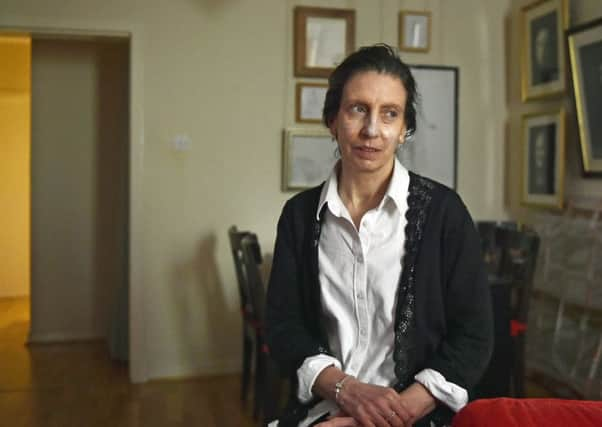Jane Bradley: Infected blood is a scandal overlooked for too long


It is anyone’s worst nightmare. Imagine undergoing absolutely vital, life-saving medical treatment. The relief when that treatment proved successful in helping you recover after an accident, haemorrhage or managing a lifelong condition.
Then, years later, out of the blue, receiving a letter telling you that that same treatment infected you with a potentially deadly illness, that you will have to go through months of gruelling treatment – and that there is still a high chance you may not recover.
Advertisement
Hide AdAdvertisement
Hide AdIt seems absolutely unbelievable in the modern day. This isn’t something that could happen in a western European country, surely? It couldn’t take place in the UK? In Scotland? Yet, it did – within my lifetime.
In the 1980s and 1990s, as many as 3,000 patients in Scotland alone were given blood contaminated with illnesses including hepatitis and HIV. Some of these patients were infected through contaminated transfusions – so-called “whole blood” victims. Others were people with long-standing conditions such as haemphilia, which required them to have regular injections of blood plasma products.
Yet, whichever way the blood was administered, the outcome was the same. Years after the event, these people all found out they had received contaminated blood, often donated by prisoners and not screened for infection.
Many of the victims, by the time they found out, had already infected their families. Women who had received hepatitis-contaminated blood who had gone on to have children after infection almost all passed liver disease on to their offspring. Others had done so through minor cuts and scrapes which most of us get every day and think nothing of. Not knowing that their blood was contaminated, they may not have scrubbed every surface it may have touched with bleach – passing the disease on to loved ones.
More than half of those infected have already passed away – with many more still suffering serious, long-term effects from the scandal.
What is most shocking is that for the past 30 years, these victims have gone almost entirely ignored. The NHS has never admitted culpability, even though documents show that concerns had been raised over the way the blood was donated and why it had not been properly screened when some other countries were already doing so. They have not received proper compensation for what happened to them.
A Scottish inquiry held three years ago was branded a “whitewash”, after it gave a single recommendation – that anyone in Scotland who had a blood transfusion before 1991 should be tested for hepatitis C – and failed to ensure that victims were compensated. For some, of course, it is too late, while others are living on borrowed time. Many have had transplants to prolong their lives, some of which have been more successful than others. A large number are disabled as a result of their illness.
Victims tell me that the new Infected Blood Inquiry is, for the first time in 30 years, giving them hope. The researchers are finally listening to them, they say, while inquiry chair Sir Brian Langstaff has already, just a few weeks after the preliminary hearings, written to the Cabinet Office, recommending that victims are given compensation “at the earliest opportunity”.
Advertisement
Hide AdAdvertisement
Hide AdIn many cases, this would be life-changing. It could never compensate for the extent to which these people’s lives have been blighted, but it could help alleviate some financial worries which the victims’ ongoing medical problems have created.
For Gill Fyffe, a former teacher living in Edinburgh, who had to give up work due to the effects of her treatment for hepatitis, a compensation payout would mean that she could live out her retirement without worry. The family has had to sell their home, while Ms Fyffe’s husband has been the sole breadwinner since their second child was born in 1988. Complications at the birth meant that Ms Fyffe ended up, rather reluctantly, having a blood transfusion. Despite feeling more exhausted than she knew was normal for a young mother of two children, it wasn’t for another seven years that she was told she had been infected with contaminated blood and had hepatitis.
Her gruelling treatment for the deadly liver disease, using drug Interferon, was initially unsuccessful, but a second round, combined with another medication as part of a clinical trial, eventually beat the hepatitis. The family was jubilant, but soon afterwards, Ms Fyffe developed a life-long sensitivity to both sunlight and electric light as a side effect of the drug.
She soon had to give up her career – it is impossible to teach children in a darkened room – and lives almost entirely without light, venturing out from her basement flat for long walks at night and plastering herself in high-grade sunblock if she does have to expose herself to light for even a short time. She is unable to use a computer or a smartphone and even struggles to socialise in dimly lit rooms. Ms Fyffe, who wrote about her experience in her memoir, Lifeblood, is one of a number of victims who have been asked to be “core participants” in the inquiry, which continues its hearings early next year.
She – and others like her – need proper compensation as soon as possible. It is the least we can do.
